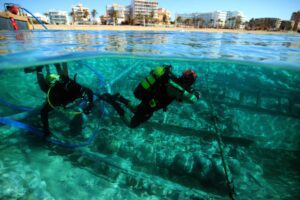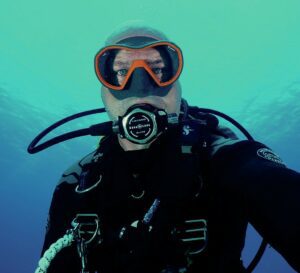Q: I had weight loss surgery a few years ago. The procedure I had was called gastric bypass. Ironically I sold my dive gear to help pay privately for the procedure, thinking I’d never need it again. But having the surgery gave me a new lease of life and I have been thinking about getting back into the water. Is diving possible? Would there be any risks, or limits on my depth? All I’m interested in is shallow recreational dives in warm water, nothing extreme. Hope you can give me some good news.
A: I think I can. Gastric bypass surgery has been around for nearly 60 years, so surgeons are well aware of the possible complications of the procedure. The pleasant-sounding ‘dumping syndrome’ is the most troublesome – cold sweats, butterflies, bloating and diarrhoea after eating (particularly while watching any form of reality TV). To avoid this, small meals which are high in protein and low in sugar are the order of the day (which makes perfect sense).
On the whole, results are good and weight loss sustained. A newer surgical approach is to wrap a band around the stomach, the size of which can be adjusted by injecting or removing saline through a port placed under the skin. This can be done via keyhole surgery (laparoscopically) and is hence commonly called a ‘lap band’. One charming complication of this procedure is Productive Burping, the regurgitation of swallowed food. Slower eating and more thorough mastication (that’s chewing) can normally sort this out.
Ascent from a dive can cause some acid reflux which might be an issue with either of these procedures, but this can usually be treated with antacids or similar drugs. Air trapping is unlikely as the gut is still ‘open’ at either end for the important release of expanding gases. So, assuming you have none of the above problems, go dive.
Q: I’ve read that diving mammals such as whales have large amounts of body fat, which I suppose is there to keep them warm. So why don’t they get the bends? Isn’t fat partly to blame for decompression sickness?
A: This is a proper brain teaser that has taxed marine biologists for many years. We all appreciate the health hazards that excess fat can cause in humans (heart disease, diabetes, high blood pressure, strokes etc.), and there is some correlation with incidence of decompression sickness (DCS) in divers.
As you rightly say, diving mammals need fat primarily for insulation, but they have quite different physiological mechanisms to deal with the associated risks. The fattest whale is thought to be the Pacific right whale (Eubalaena japonica), which can weigh 100 tons, 40 percent of which is fat. The blubber layer on a right whale can be up to six feet thick, and their high body fat percentage means they don’t sink when they die (which is why they were the ‘right’ whale to kill). Most of the oxygen a whale requires for a dive is stored in blood and muscle, with only nine percent in their lungs (compared with 34 percent in human lungs).
There are several explanations as to why whales don’t get bent. Firstly, they are diving with a single breath (albeit a very big one), so they are not taking on more compressed gas at depth, as scuba divers do. To some extent this is why freedivers don’t get narced or bent as well, despite divingto depths far in excess of theoretical tolerances.
Secondly, the ribs of whales are flexible and mobile, and collapse inwards with pressure, thereby compressing the lungs and forcing the air into areas where absorption does not occur (mainly the upper airways).
Thirdly, this lung compression reduces blood flow to the lungs. The net result is that nitrogen absorption into the blood is minimal, and hence the risk of DCS negligible.
Photo credit: Chris King
Do read if it is safe to scuba dive if you suffer from panic attacks?







